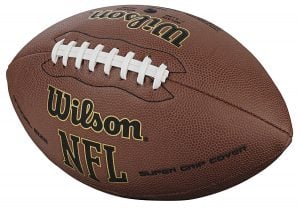
More than 50 college football players have opted out of the Fall 2020 season. Some of those players will choose to return to their respective athletic programs in 2021 while others will hire agents and begin preparations for the 2021 NFL Draft.
Notable players who have decided to opt out of the Fall 2020 season include Georgia quarterback Jamie Newman, Virginia Tech defensive back Caleb Farley, Penn State linebacker Micah Parsons, and LSU wide receiver Ja’Marr Chase. The aforesaid individuals, other than Newman, have all already retained agents and will more than likely rely on their representatives to cover their training costs, provide a monthly stipend and offer up a handsome lump sum of cash, referred to as a “marketing advance,” that is technically supposed to be recovered by the agents over time from the marketing revenue that the players are able to generate from off-field endeavors.
Recruiting and representing these high-profile players is an expensive effort for agencies even when global pandemics are not present. This year, with the coronavirus pandemic in play and a growing number of players opting out in August and September, the price to compete for top talent has gone up for sports agents, mainly because the monthly stipend and training cost coverage are being delivered at a much earlier date.
Football insider Neil Stratton suggested that those players projected to be selected among the top 20 picks of the 2021 NFL Draft are likely to command $7,000 to $8,000 per month in the form of a stipend, a separate marketing guarantee that ranges from $150,000 to $300,000, and $30,000 to $40,000 in training expenses, which typically includes a car rental as well as room and board. These are all out-of-pocket costs that the sports agent will incur prior to ever receiving any money from the represented players.
The estimated costs obviously scale down as the players are projected to be selected later in the 2021 NFL Draft. Stratton predicted stipends of roughly $5,000 per month for players pegged at the 21st to 50th slots, a bit less than $4,000 per month for those likely to be drafted at the end of the second round through the third round, and then $1,500 to $2,000 for those who are predicted to be off the board by at least the end of the fifth round. Players selected in these areas will also be seeking marketing guarantees, but there is a big drop off in amounts they should be reasonably able to command as the projections get worse.
The one category of costs that remains rather static for any of the opt outs suggested to be drafted before the end of the fifth round of the 2021 NFL Draft is related to training. Stratton said that it is unlikely that an agent will be able to successfully convince any of these players that they deserve less than full cover for the amount of their training at the facility of their choice, which ultimately will end up running at least $30,000 throughout the duration of the experience.
The little-known fact is that all of these pre-Draft expenses, but for the marketing guarantee, are typically not recoverable by agents, and agents are known to often neglect requiring the marketing guarantee to be reimbursed so long as the players remain signed to the parties’ Standard Representation Agreement (SRA).
If an agent brings a dispute against a player for reimbursement of these expenses, which only occurs when a player leaves the agent (a somewhat common practice), then the agent will have the burden to prove entitlement to reimbursement. The general rule is that, if a player pays the agent the agent’s commission on the NFL team deal negotiated by the agent, then the agent is not entitled to recapturing out-of-pocket costs, including those training costs that the player may have contractually agreed to reimburse in the case that the player terminates the SRA. The justification for this precedent is that it would be tantamount to a double payment that does not comport with notions of justice and equity. A rare exception to the general rule is when there are unusual or extenuating circumstances (such as the representation of an undrafted player and/or a relatively new agent involved in the transaction), and the precedent established within the NFL Players Association arbitration system is controlling on that issue as well.
The vast majority (if not all) of the college football players opting out and selecting agents will be drafted, and drafted quite high. The agents who sign these players are extremely unlikely to be classified as inexperienced. As such, it is much more likely than not that, as long as the players pay their agents the commissions they will be entitled to for negotiating their forthcoming rookie deals (assuming the players do not switch agents prior to such negotiations), these agents will never receive a reimbursement for the training costs and stipends they lay out for these players leading up to the 2021 NFL Draft. Chalk it up to being the cost of doing business in a cutthroat industry.
Darren Heitner is the founder of Heitner Legal. He is the author of How to Play the Game: What Every Sports Attorney Needs to Know, published by the American Bar Association, and is an adjunct professor at the University of Florida Levin College of Law. You can reach him by email at heitner@gmail.com and follow him on Twitter at @DarrenHeitner.

